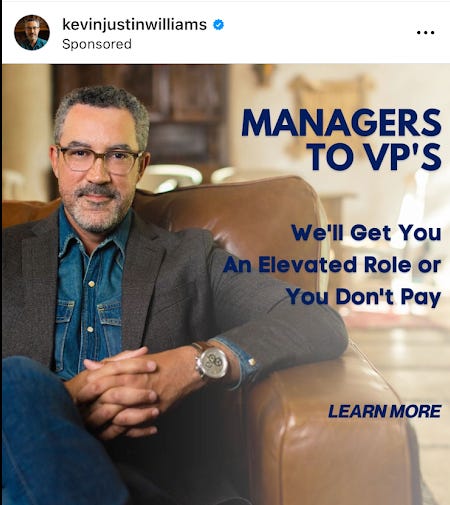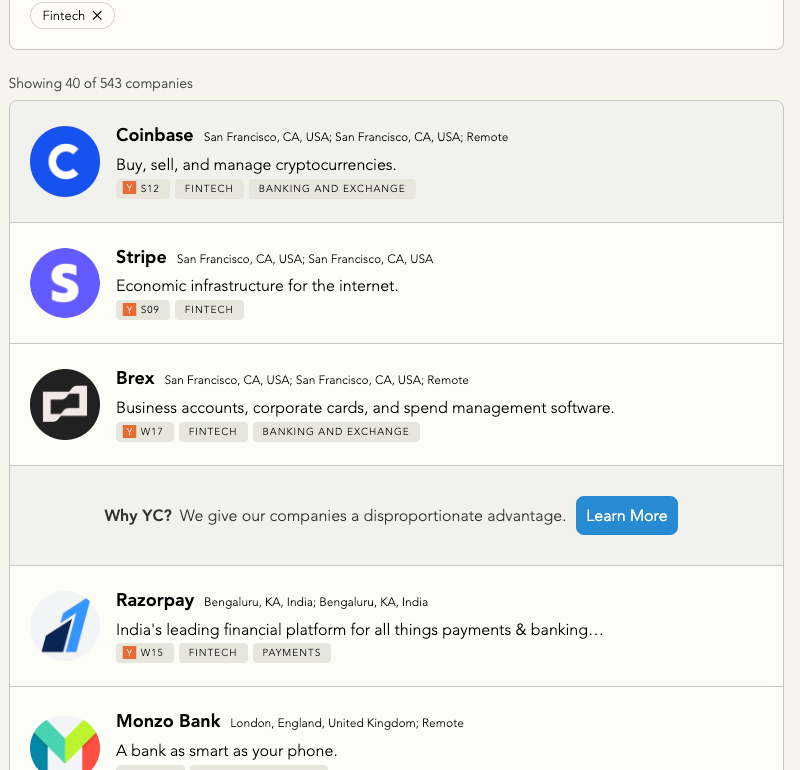Is a Weak Positioning Statement Hurting Your Consultancy?
Your positioning statement is the most important part of your consultancy. Here’s how to improve yours.

📣 Announcements
I’m offering a 10% referral bonus (up to $1,000) if you refer someone who needs a SaaS product built to All-In Consulting.
Have them mention your name, and I’ll reach out when the deal closes.
I’m 3 weeks into a tech consulting accelerator called Vixul. And we spent the last two weeks discussing one topic: positioning statements.
Positioning is the most important aspect of any consulting business because it forms the foundation of the rest of your business strategy.
Without a strong positioning statement, it’s difficult to do any lead-generation or create any content because you won’t know who to target or how to speak to your customers’ problems.
A weak positioning statement is often the root cause of all other issues in a consultancy.
In fact, if I only had one piece of advice to share with new independent consultants, it would be to spend more time honing your positioning statement.
It’s so important that I’m planning to take the next few days off to focus on refining my positioning statement more.
Any time spent thinking about positioning is time well-spent.
So in today’s article, I’ll help discuss my learnings on positioning from Vixul including:
What a positioning statement is
Why positioning is so important
The 4 tests of a good positioning statement
What is a Positioning Statement?
A positioning statement is a concise statement that communicates the value that your business provides to a target audience.
A good positioning statement generally hits three main points:
Target Audience: Who your ideal customer is
Problem: What problem are you solving for them
Uniqueness: How you are different from other competitors in the space
For example, I often see many people position themselves as a “career coach.” But the issue with this positioning statement is that it’s not clear:
what type of careers they advise
what problem they are solving
or how they are unique from other career coaches
This ambiguity leaves potential customers confused, and a confused customer is a gone customer.
However, compare this to another positioning statement I saw by career coach Kevin Justin Williams that states: “Managers to VP’s: We’ll get you an elevated role or you don’t pay.”
This is a strong positioning statement because it answers all 3 questions very clearly:
Target Audience: Middle Managers
Problem: Trying to get promoted to upper management
Uniqueness: The elevated role or you don’t pay
Why Strong Positioning Makes a Difference
In this case, Williams has refined his positioning statement so that customers will quickly know whether they are a good fit for him or not.
This results in:
a higher close rate during intro calls as he won’t waste time with people outside his target audience.
less operational burden, as his clients are similar so he can re-use his process across his entire customer base.
the ability to command premium pricing, as it is much harder to find a coach specific to his niche than it is to find a general career coach.
That’s the power of strong positioning - it literally affects every part of the business, which is why improving your positioning statement should be one of the highest priority objectives for any new consultancy.
Four Tests of Good Positioning
If your positioning already communicates your target audience, problem, and uniqueness, you’re likely in decent shape.
But I wanted to offer 4 extra criteria I learned from Vixul to evaluate how strong a positioning statement is:
Conference Test - Is there a conference that your target customers attend?
List Test - Can you find (buy?) a list of your target customers?
Vixul Test - How likely are you to find another consultancy at Vixul that does the same thing?
Thank God Test - How likely is someone to find you and say, “Thank God you exist”?
If your positioning statement meets all four of these criteria, then your positioning statement is rock solid.
Conference Test
The Conference Test asks, “Is there a conference that all your target customers attend?” And if so, then your audience is specific enough.
For example, there are many “business marketing agencies” out there, but the issue with this positioning statement is that “business” is so broad that there aren’t any conferences for all businesses.
However, if you narrowed your positioning to be a “marketing agency for beverage companies”, there is literally a list of all the top annual US food and beverage conferences on the front page of Google.
So your positioning now passes the conference test!
The conference test is important because if businesses in your target niche gather together, it means they often have big and similar problems that compel them to discuss it in person.
And then you can offer a service that will help address one of these problems that they want solved!
Conferences are also an extra lead-generation channel that you can explore that other less niched down competitors don’t have, giving you an advantage.
List Test
The List Test is similar to the Conference Test. With this test you ask “Could I find (or buy?) a list of all my target customers?”
And if so, then your target audience is specific enough.
For example, if I said I built software MVP’s for companies, it’s hard to compile a list of potential customers since the companies that need software prototypes span many industries and technologies.
One client may ask for a mobile fitness MVP app, another may ask for a ChatGPT MVP, and yet another wants an MVP of software interacting with hardware.
The three example companies above would never be on the same list, so they would be hard to target in any campaign effort.
However, if I said I built software products for FinTech companies, producing a list becomes very easy.
For example, going to the YCombinator Startup directory and searching for “FinTech” yields an immediate list.
This makes lead-generation easy, because if you can find a list of exact people to target, then you know exactly where and who to run ads for, which leads to more effective sales cycles.
This is exactly the advantage that one FinTech product consultancy has called Praxent. They are able to do this type of targeting on FinTech companies that other less niched consultancies would be unable to do.
Vixul Test
The Vixul test was something I came up with when I realized just how many consultancies in Vixul offer the same service: custom software development.
Considering that Vixul is relatively new, if one can find another consultancy in the same space in an accelerator like Vixul, imagine how many other consultancies also do the exact same thing!
That indicates there is no differentiation and competing in this space will lead to a race to the bottom in prices.

So I came up with the Vixul Test which states, “If you can find another company in an accelerator in your domain that does exactly what you’re doing, you’re likely not niched down enough.”
Because of this, I’m planning to pivot into focusing custom software development in a particular industry to differentiate from the rest of Vixul.
Focus down until you have between 10 and 200 competitors and 2,000 to 10,000 prospects”
- David Baker, “The Business of Expertise”
Thank God Test
This last test was from Tim Hamilton of Praxent, who spoke at one of the group events we had at Vixul.
He said that a good positioning statement should be so compelling and speak so specifically to a target audience’s problem that if they came across your offering, they would say to themselves “Thank God you exist!”
This is the last test I like to use because it ensures you’re solving such an urgent problem for your target customer that your service feels like it was a custom crafted gift from above.
A good example of the “Thank God” test is Vixul’s positioning statement itself.
Branded as the “YCombinator for Tech Services and Consultancies”, I recall feeling like this was a gift from heaven when I first heard of this program because it is everything that I was looking for and needed to grow my own consulting practice.
Also note how Vixul’s positioning passes all the other tests above as well, as it’s easy for them to find a list of tech consultancies through websites like Clutch.co or Capterra.
Final Thoughts
If you’re trying to build a consultancy, your positioning statement is the first place you should start.
I recommend trying the audience/problem/uniqueness framework I listed above and then applying the four tests to your positioning statement.
If your final positioning statement passes all 4 tests and fits in the audience/problem/uniqueness framework, you have a solid foundation from which the rest of your consultancy operations will naturally flow.
Whenever you're ready, there are 2 ways I can help you:
“Beginner’s Guide to Medium in 75 minutes” - where I break down my entire writing process and show you how to grow your Medium following.
“How to Be an Engineer Influencer” - where I teach W-2 employees how to diversify their income streams by building an audience on social media.
Connect with me on social media here.








